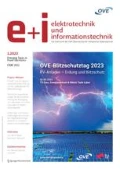Dieser Artikel beschreibt Ziele und Lösungsansatz des prämierten FIT-IT-"Embedded Systems"-Projekts "Distributed Algorithms for Robust Tick Synchronization" (DARTS), das der Entwicklung einer fehlertoleranten Alternative zur herkömmlichen Taktgenerierung in VLSI-Chips, Systems-on-Chip und anderen Hardwaresystemen gewidmet ist. Anstatt das Taktsignal eines einzelnen Oszillators mit Hilfe eines aufwändig balancierten Clock-Trees systemweit zu verteilen, wird in DARTS der Takt jeder Funktionseinheit mit Hilfe eines lokalen Taktgenerators erzeugt. Damit wird der "Single Point of Failure" eliminiert, den ein zentraler Oszillator zwangsläufig darstellt. Im Gegensatz zum klassischen "Globally Asynchronous Locally Synchronous" (GALS)-Ansatz sind die lokalen Taktgeneratoren beim DARTS-Ansatz jedoch keine Oszillatoren, sondern Instanzen eines verteilten Algorithmus zur fehlertoleranten Generierung synchronisierter lokaler Taktsignale.
This paper describes objective and rationale of the award-winning FIT-IT "Embedded Systems" Project "Distributed Algorithms for Robust Tick Synchronization" (DARTS). Within DARTS a fault-tolerant alternative to the conventional clock generation and clock distribution scheme for VLSI chips, systems-on-chip and similar hardware systems is being developed. Rather than globally distributing the clock produced by a single oscillator over an elaborately balanced clock tree, we propose to equip each functional unit with its own local clock generator. This eliminates the "single point of failure" constituted by a central clock. However, in contrast to the traditional "Globally Asynchronous Locally Synchronous" (GALS) approach DARTS does not employ oscillators as local clock generators, but rather instances of a distributed algorithm. In this way fault-tolerant generation of globally synchronized local clock signals is accomplished.
Literatur
Bhamidipati, R., Zaidi, A., Makineni, S., Low, K. K., Chen, R., Liu, K.-Y., Dalgrehn, J. (2002): Challenges and methodologies for implementing high-performance network processors. Intel Technology Journal. Intel Corp., Vol. 6, Issue 3, August 15, 2002.
Chapiro, D. M. (1984): Globally-asynchronous locally-synchronous systems. Ph.D. thesis, Stanford University, Oct. 1984.
Chelcea, T., Novick, S. M. (2000): A low-latency FIFO for mixed-clock systems. IEEE Computer Society Press: IEEE Computer Society Workshop on VLSI, April 2000: 119–126.
Choi, B.-R., Ho Park, K., Kim, M. (1990): An improved hardware implementation of the fault-tolerant clock synchronization algorithm for large multiprocessor systems. IEEE Computer Society Press: IEEE Transactions on Comp., Vol. 39, No. 3, March 1990: 404–407.
Constantinescu, C. (2002): Impact of deep submicon technology on dependability of VLSI circuits. IEEE Computer Society Press: Proc. of the Int. Conf. on Dependable Systems and Networks (DSN) 2002, June 2002: 205–209.
Dolev, D., Halpern, J. Y., Strong, H. R. (1986): On the possibility and impossibility of achieving clock synchronization. Journal of Computer and System Sciences, Vol. 32: 230–250.
Fairbanks, S. (2004): Method and apparatus for a distributed clock generator. US patent no. US2004108876.
Ferringer, M., Fuchs, G., Steininger, A., Kempf, G. (2006): VLSI implementation of a fault-tolerant distributed clock generation. The 21st IEEE Int. Symp. on Defect and Fault Tolerance in VLSI Systems (DFT'06), October 2006.
Friedman, E. G. (2001): Clock distribution networks in synchronous digital integrated circuits. Proc. of the IEEE. Vol. 89, No. 5, May 2001: 665–692.
Függer, M., Schmid, U., Fuchs, G., Kempf, G. (2006): Fault-tolerant distributed clock generation in VLSI systems-on-chip. IEEE Computer Society Press: Proc. European Distributed Computing Conf. EDCC'06: 87–96.
Hauck, S. (1995): Asynchronous design methodologies: An overview. Proc. of the IEEE, Vol. 83: 69–93.
Le Lann, G., Schmid, U. (2003): How to implement a timer-free perfect failure detector in partially synchronous systems. Technical Report 183/1–127, Department of Automation, Technische Universität Wien, April 2003.
Maza, M. S., Aranda, M. L. (2001): Analysis of clock distribution networks in the presence of crosstalk and groundbounce. Proc. Int. IEEE Conf. on Electronics, Circuits, and Systems (ICECS): 773–776.
Maza, M. S., Aranda, M. L. (2003): Interconnected rings and oscillators as gigahertz clock distribution nets. ACM Press: Proc. of the 13th ACM Great Lakes symposium on VLSI (GLSVLSI'03): 41–44.
Myers, C. J. (2001): Asynchronous circuit design. John Wiley and Sons.
Naffziger, S. D., Colon-Bonet, G., Fischer, T., Riedlinger, R., Sullivan, T. J., Grutkowski, T. (2002): The implementation of the Itanium 2 Microprocessor. IEEE Journal of Solid-State Circuits, Vol. 37, No. 11, Nov. 2002: 1448–1460.
Ramanathan, P., Shin, K. G., Butler, R. W. (1990): Fault-tolerant clock synchronization in distributed systems. IEEE Computer Society Press: Computer, Vol. 23, No. 10, Oct. 1990: 30–42.
Redant, S., Marec, R., Baguena, L., Liegeon, E., Soucarre, J., Van Thielen, B., Beeckman, G., Ribeiro, P., Fernandez-Leon, A., Glass, B. (2004): The design against radiation effects (DARE) library. Proc. READECS 04, September 2004.
Restle, J. P. et al. (2002): The clock distribution of the Power4 microprocessor. Proc. IEEE Int. Solid-State Circuits Conf. 2002. ISSCC 2002: 144–145.
Restle, P. J. et al. (2001): A clock distribution network for microprocessors. IEEE Computer Society Press: IEEE Journal of Solid-State Circuit, Vol. 36, No. 5, May 2001: 792–799.
Schmid, U., Steininger, A. (2004): Dezentrale fehlertolerante Taktgenerierung in VLSI Chips. Research Report 69/2004, Technische Universität Wien, Institut für Technische Informatik, 2004 (Österr. Patentanmeldung A 1223/2004).
Shin, K. G., Ramanathan, P. (1988): Transmission delays in hardware clock synchronization. IEEE Computer Society Press: IEEE Transactions on Comp., Vol. C-37, No. 11, Nov. 1988: 1465–1467.
Srikanth, T. K., Toueg, S. (1987): Optimal clock synchronization. ACM Press: Journal of the ACM, Vol. 34, No. 3, July 1987: 626–645.
Sutherland, I. E. (1989): Micropipelines. ACM Press: Communications of the ACM, Vol. 32, No. 6, June 1989: 720–738.
VanAlen, D. J., Somani, A. K. (1991): An all digital phase locked loop fault tolerant clock. IEEE Computer Society Press: Proc. Int. Symp. on Circuits and Systems, Vol. 5, June 1991: 3170–3173.
Vasanthavada, N., Marinos, P. N. (1988): Synchronization of fault-tolerant clocks in the presence of malicious failures. IEEE Computer Society Press: IEEE Transactions on Comp. Vol. 37, No. 4, April 1988: 440–448.
Widder, J. (2003): Booting clock synchronization in partially synchronous systems. In: Proc. of the 17th Int. Symp. on Distributed Computing (DISC'03), Vol. 2848 of LNCS. Springer: 121–135.
Author information
Authors and Affiliations
Rights and permissions
About this article
Cite this article
Schmid, U., Steininger, A. & Sust, M. FIT-IT-Projekt DARTS: dezentrale fehlertolerante Taktgenerierung. Elektrotech. Inftech. 124, 3–8 (2007). https://doi.org/10.1007/s00502-006-0409-0
Received:
Accepted:
Issue Date:
DOI: https://doi.org/10.1007/s00502-006-0409-0
Schlüsselwörter
- Fehlertolerante Taktgenerierung
- Taktsynchronisation
- Fehlertoleranter verteilter Algorithmus
- VLSI Systems-on-Chip

